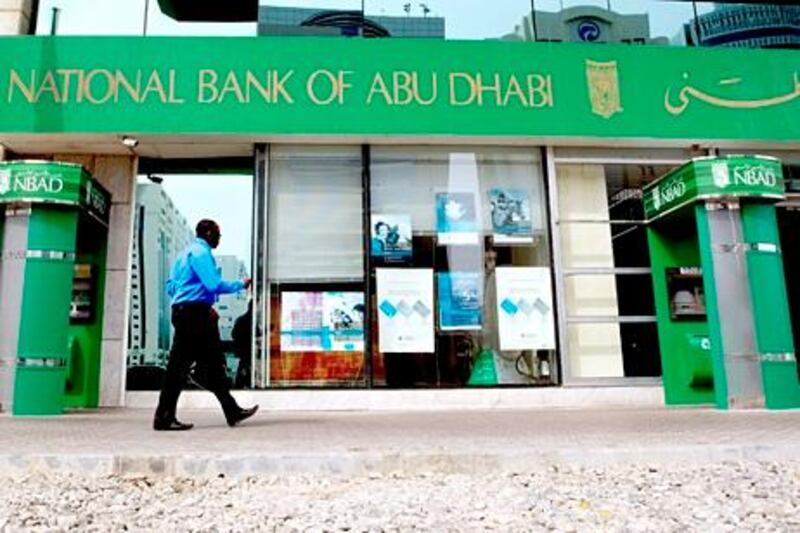Andrew Rossiter decided it was time to leave London after a surging tide of regulation, sovereign debt turmoil and banking scandals rocked Europe's financial capital.
With 19 years of experience under his belt, Mr Rossiter swapped his job at Barclays Capital, the former name of the investment banking arm of the financial institution, for a new position as the chief technology officer at ADS Securities, a young financial brokerage in Abu Dhabi.
A few weeks into his new role, Mr Rossiter has no regrets about moving to the UAE capital.
"The biggest factor when you're investing money and deciding where to move is stability," says Mr Rossiter. "London used to be a stable environment to live and work but there are political, financial and social reasons why it isn't any more.
"Abu Dhabi offers stability and I was very impressed with the ambition of the emirate and the long-term plan of the people I talked to here," he adds.
Mr Rossiter is one of a growing wave of bankers looking to escape the troubled European financial services industry for the UAE's more appealing shores. As well as strong demand from Britain, recruitment consultants estimate a 50 per cent rise in inquiries from candidates within the euro zone in the past year.
Sunshine, tax-free salaries and the chance to jump up the career ladder more quickly mean the Emirates has long been an attractive port of call for bankers from the West. But recently there have been other reasons spurring people to move here.
Fall-out from the controversy surrounding the London interbank offered rate (Libor) fixing scandal, together with US investigations into alleged money laundering by several banks, including HSBC and Standard Chartered, have left a bitter taste in the mouth of many bankers in London.
A backlash against the industry, both from authorities and the public, for its perceived role in the financial crisis in 2008 has added to their gloom. The euro-zone debt turmoil has also cast a giant shadow over Europe's banking system. Uncertainty linked to the problems has stunted earnings and caused job losses to spiral.
"We are seeing increasing demand from banking candidates in Europe wanting to relocate here and are putting that down to the euro-zone crisis and the fall-out from Libor," says Gareth El Mettouri, a senior manager with Robert Half UAE, a recruitment company.
"Some are unemployed and others have seen their colleagues lose their jobs and are wanting to leave on their own terms while the Middle East is an attractive option for them."
In comparison to Europe, the outlook is rosier for financial services in the Emirates. Bolstered by generally healthy second-quarter earnings, a number of local lenders and other financial firms such as Abu Dhabi Commercial Bank, First Gulf Bank and National Bank of Abu Dhabi are either actively hiring or gearing up to recruit.
The trend is in contrast with some international banks that have scaled back their presence in the region in the past year to help shore up their domestic businesses.
But job hunters from Europe still face challengers here. With mergers and acquisitions and private equity deals still thin on the ground, opportunities within investment banking are limited. Activity is stronger within retail. But competition is tough.
"The preference is to take Arabic speakers or those people with local experience in retail markets. Among houses dealing with difficult products [such as foreign exchange trading] there's room as they like people with skills and training," says Jason Grundy, the director of financial services at Michael Page International, a recruitment company.
ADS Securities, Mr Rossiter's employer, is among those recruiting. It has already taken on a number of staff including several from euro-zone nations. It is still looking to fill positions within senior investment banking and foreign exchange trading.
"We are talking to people in tier one banks in Europe, both employed and unemployed, who are considering moving here," says Wallis Barnett, a recruitment manager at ADS Securities.
"The UK has always had a close relationship with the UAE but there's a lot more openness now from the US, despite the tax situation, and interest from people in the euro zone like Greece, Italy and France who would traditionally move to London but are now looking here."
Risk management is one of the areas in which many banks are keen to beef up their manpower. Most are putting in safeguards to avoid a repeat of losses linked to the global financial crisis as well as in response to more stringent Central Bank rules relating to everything from capital adequacy to exposure to government-linked companies.
"Banks are especially keen to ramp up their risk business and those in Europe understand the approach to Basel III," says Mr Mettouri.
In addition to European bankers, more inquiries are also coming in from the US, says Jennifer Campori, the managing director for the Middle East and Europe at the recruitment firm Charterhouse Partnership in Dubai. "Europe is slow and the US is pretty much at a standstill before the elections in November so people are more inclined to come here," she says.
With uncertainties in Europe and the US unlikely to lift in the near future, the banking industry in the Emirates could tempt more expats.
As Mr Rossiter settles into his new life in Abu Dhabi, he is already receiving emails from former colleagues interested in making a similar move.
"Quite a few are making noises about coming here," he says with a smile.
"I don't think they would have contemplated that kind of move a year or two ago."





